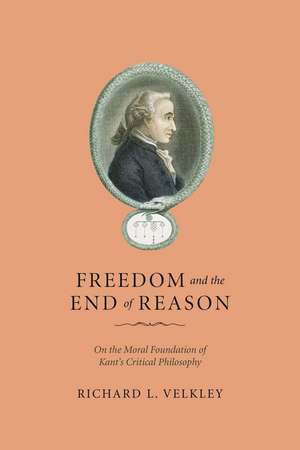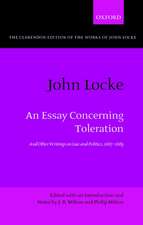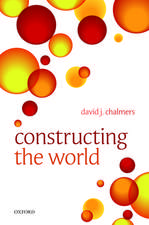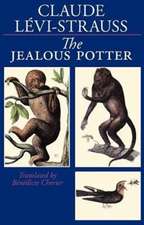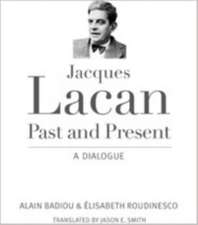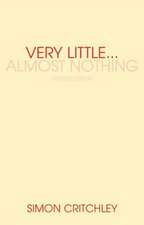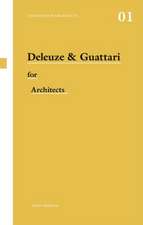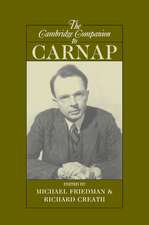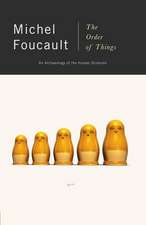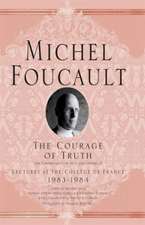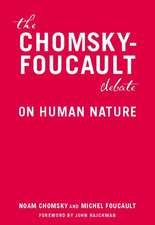Freedom and the End of Reason: On the Moral Foundation of Kant's Critical Philosophy
Autor Richard L. Velkleyen Limba Engleză Paperback – 20 mar 2014
In Freedom and the End of Reason, Richard L. Velkley offers an influential interpretation of the central issue of Kant’s philosophy and an evaluation of its position within modern philosophy’s larger history. He persuasively argues that the whole of Kantianism—not merely the Second Critique—focuses on a “critique of practical reason” and is a response to a problem that Kant saw as intrinsic to reason itself: the teleological problem of its goodness. Reconstructing the influence of Rousseau on Kant’s thought, Velkley demonstrates that the relationship between speculative philosophy and practical philosophy in Kant is far more intimate than generally has been perceived. By stressing a Rousseau-inspired notion of reason as a provider of practical ends, he is able to offer an unusually complete account of Kant’s idea of moral culture.
| Toate formatele și edițiile | Preț | Express |
|---|---|---|
| Paperback (1) | 250.55 lei 6-8 săpt. | |
| University of Chicago Press – 20 mar 2014 | 250.55 lei 6-8 săpt. | |
| Hardback (1) | 456.36 lei 6-8 săpt. | |
| University of Chicago Press – 30 iun 1989 | 456.36 lei 6-8 săpt. |
Preț: 250.55 lei
Nou
Puncte Express: 376
Preț estimativ în valută:
47.95€ • 49.53$ • 39.91£
47.95€ • 49.53$ • 39.91£
Carte tipărită la comandă
Livrare economică 25 martie-08 aprilie
Preluare comenzi: 021 569.72.76
Specificații
ISBN-13: 9780226155173
ISBN-10: 022615517X
Pagini: 248
Dimensiuni: 152 x 229 x 18 mm
Greutate: 0.34 kg
Editura: University of Chicago Press
Colecția University of Chicago Press
ISBN-10: 022615517X
Pagini: 248
Dimensiuni: 152 x 229 x 18 mm
Greutate: 0.34 kg
Editura: University of Chicago Press
Colecția University of Chicago Press
Notă biografică
Richard L. Velkley is the Celia Scott Weatherhead Professor of Philosophy at Tulane University. He is the author of many books, including Being after Rousseau and Heidegger, Strauss, and the Premises of Philosophy, both also published by the University of Chicago Press.
Cuprins
Preface
Acknowledgments
Abbreviations
Introduction
The Problem of the End of Reason in Kant's Philosophy
The Primacy of the Practical End of Reason
Rousseau's Insight
The Highest Good and the End of Reason
A Prospectus of the Argument
1. The Revolution in the End of Reason: Some Principal Themes
The Revision of Modern Foundations
The Critique of Instrumental Reason
The Crisis in the Relation of Metaphysics to Common Reason
Rousseau's Protest against Modern Enlightenment
Kantian Philosophy as Transcendental Practice
2. The Teleological Problem in Modern Individualism
Individualism and Moral Sense
Rousseau's Challenge to Moral Sense
The Teleological Problem in Rousseau
3. Kant's Discovery of a Solution, 1764-65
History, Nature, and Perfection
Will, Reason, and Spontaneity
The Analysis of Passion: Honor and Benevolence
Justice and Equality
Common Reason and the End of Science
4. The Origins of Modern Moral Idealism, 1765-80
The Unity of Freedom and Nature as Ideal Goal
The Failures of Ancient Moral Idealism
Morality as System
Socratic Metaphysics as Science of the End and the Limit of Reason
The Dialectic of the Pure Concepts of the Whole
5. Culture and the Practical Interpretation of the End of Reason, 1781-1800
The Ultimate End of Theoretical Inquiry
Philosophy's "Idea" and Its History
Culture's Contradictions and Their Ideal Resolution
Epilogue
Notes
Index
Acknowledgments
Abbreviations
Introduction
The Problem of the End of Reason in Kant's Philosophy
The Primacy of the Practical End of Reason
Rousseau's Insight
The Highest Good and the End of Reason
A Prospectus of the Argument
1. The Revolution in the End of Reason: Some Principal Themes
The Revision of Modern Foundations
The Critique of Instrumental Reason
The Crisis in the Relation of Metaphysics to Common Reason
Rousseau's Protest against Modern Enlightenment
Kantian Philosophy as Transcendental Practice
2. The Teleological Problem in Modern Individualism
Individualism and Moral Sense
Rousseau's Challenge to Moral Sense
The Teleological Problem in Rousseau
3. Kant's Discovery of a Solution, 1764-65
History, Nature, and Perfection
Will, Reason, and Spontaneity
The Analysis of Passion: Honor and Benevolence
Justice and Equality
Common Reason and the End of Science
4. The Origins of Modern Moral Idealism, 1765-80
The Unity of Freedom and Nature as Ideal Goal
The Failures of Ancient Moral Idealism
Morality as System
Socratic Metaphysics as Science of the End and the Limit of Reason
The Dialectic of the Pure Concepts of the Whole
5. Culture and the Practical Interpretation of the End of Reason, 1781-1800
The Ultimate End of Theoretical Inquiry
Philosophy's "Idea" and Its History
Culture's Contradictions and Their Ideal Resolution
Epilogue
Notes
Index
Recenzii
“Velkley handles his subject with skill and style, moving easily from Rousseau to Kant, and from the latter’s earlier to his later works. This is a significant piece of scholarship not merely for its historical insights but also because of the new focus it provides for interpreting Kant’s philosophy as a whole.”
“Velkley has produced an outstanding philosophical work on the late modern problem of the relation between reason and freedom.”
“The picture of Kant that emerges from this fascinating study is at once richer and more complex than the straw man who often appears in the works of defenders and detractors alike.”
“Velkley’s reconstruction of Kant’s encounter with Rousseau is sufficiently interesting to reward the reader of this thoughtful and impressively researched book. By leaving aside stale debates about ‘influence’ in favor of an account of how one philosopher creatively responded to the challenges posed by another, Velkley provides a useful model of how scholars should deal with encounters between great minds.”
